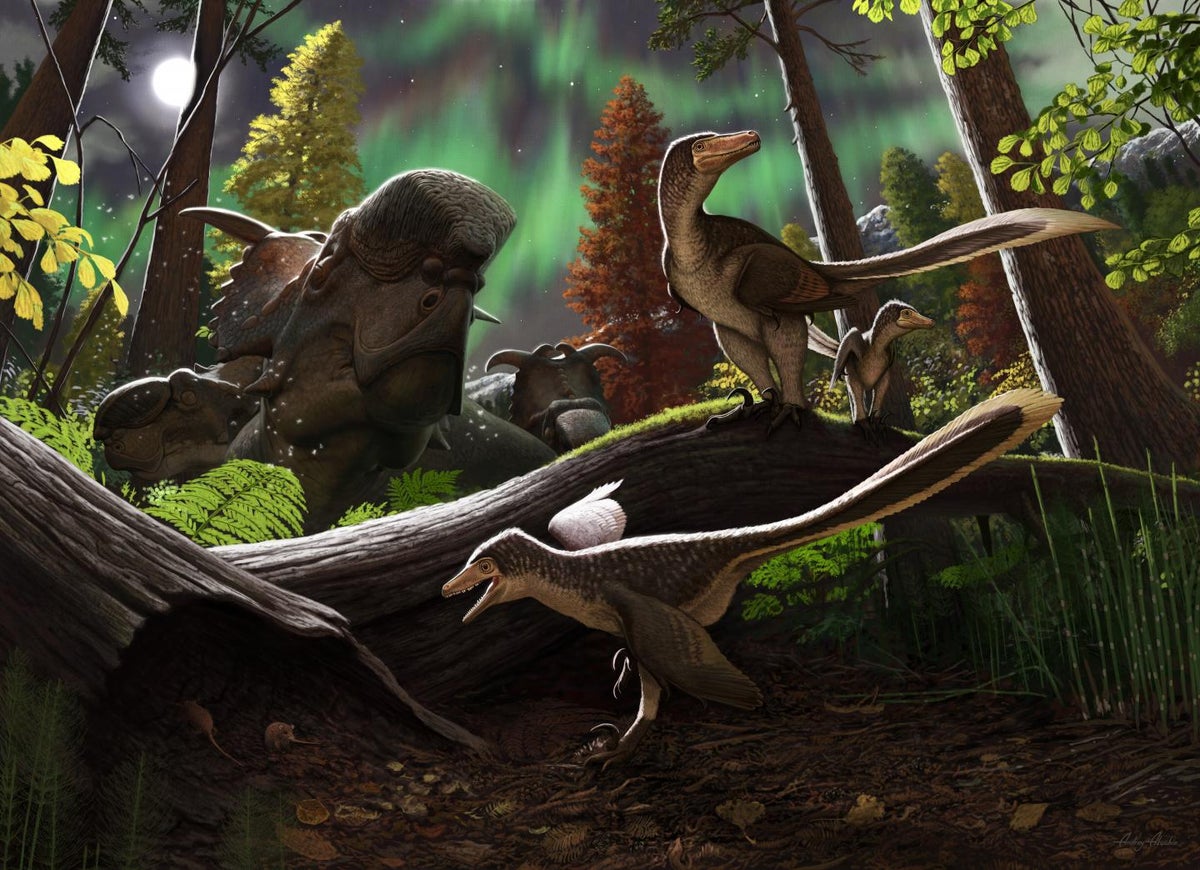
Scientists have unearthed a bird-like dinosaur that lived about 120 million years ago in modern-day China with the partial skeleton of an ancient frog in the remains of its gut.
Researchers, including those from the Chinese Academy of Geological Sciences, say the dinosaur named Daurlong wangi was a type of mid-sized dromaeosaurid – a group of bird-like predatory dinosaurs.
This species, scientists say, primarily fed on fish, mammals, and other dinosaurs.
The dinosaur lived during the Early Cretaceous period, about 145 to 100 million years ago (mya) in Jehol Biota, a freshwater ecosystem in what is today northeastern China, according to the study, published in the journal Scientific Reports.
In the remains of the dinosaur, researchers also found a “large bluish layer” in the abdomen, representing one of the few occurrences of intestinal remnants among such dinosaurs.
“Dromaeosauridae is a clade of small- to mid-sized theropod dinosaurs known from the Cretaceous of both hemispheres,” said Xuri Wang from the Institute of Geology at the Chinese Academy of Geological Sciences.
“The Early Cretaceous Jehol Biota from north-eastern China has provided a rich diversity of dromaeosaurids, the majority of which referred to Microraptorinae,” Dr Wang added.
In the study, researchers described the dinosaur species based on an almost complete skeleton found at the Pigeon Hill locality of the Longjiang Formation in Inner Mongolia.
“The holotype of Daurlong wangi is an almost complete and articulated skeleton with a length of about 1.5 m,” they said.
Scientists also found the partial skeleton of an ancient frog in its gut contents, marking the first case of such intestinal preservation in a dinosaur closely related to birds.
“The reconstruction of the gastrointestinal tract in extinct species, including dinosaurs, could be inferred, indirectly, from gut content remains,” they said.
“The Daurlong wangi specimen shows the first case of intestinal preservation in a theropod lineage very close to bird ancestry,” scientists added.







